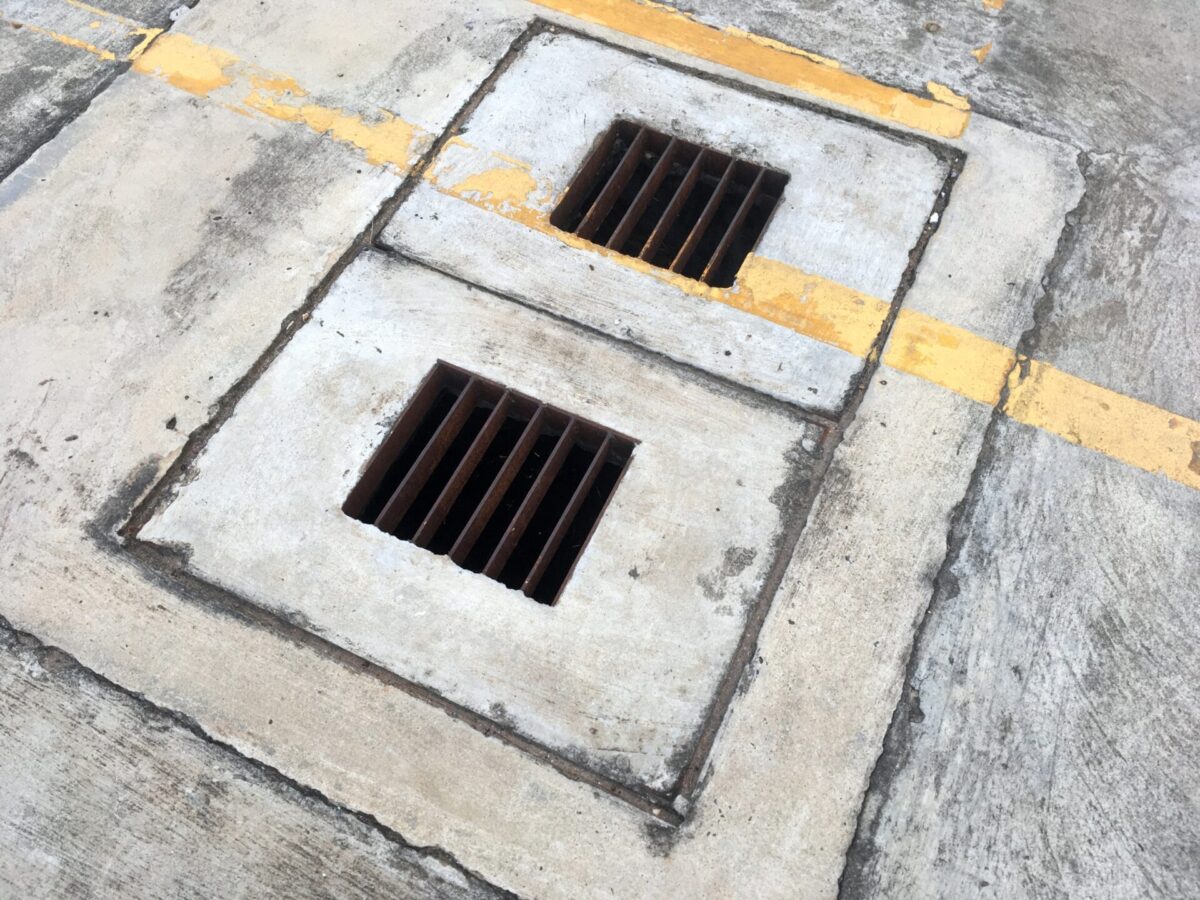Different Types of Commercial Drainage Systems: Usages and Installation

Posted on June 13, 2023 by Jeremiah Sooter
Commercial drainage systems collect, transport, and deposit stormwater runoff from buildings, surface roads, and other structures. These drains play an important role in stormwater management planning to reduce the risk of flooding and property damage.
In addition, industrial drains mitigate erosional processes and surface runoff through the safe collection and disposal of stormwater and debris. A properly installed commercial drain protects the environment from pollutants entering nearby drinking water or wetlands.
Types of Commercial Drainage Systems
Egress systems play an essential role in managing surface water and stormwater runoff, which means local businesses must comply with local building codes. There are several types of commercial egress systems:
- Surface water management systems
- Subsurface drainage systems
- Stormwater runoff control systems
Each type of system has unique advantages and disadvantages that need assessing before making a decision.
Surface Water Management Systems
Surface water management systems collect and manage runoff from rain, snowmelt, and other forms of precipitation, such as:
- Sleet
- Hail
- Graupel
Runoff is any remaining surface water that does not infiltrate the ground to recharge the groundwater supply. Instead, that water follows the natural terrain through a drainage basin that forms our creeks, streams, and rivers, which fill our lakes, reservoirs, and wetlands. In a metropolitan area, surface water management systems follow the same runoff laws.
But unlike the organic processes found in an environmental watershed, civil engineers often design surface water management systems that trap and redirect water through concrete or metal culverts and drainage ditches that infiltrate engineered retention ponds or detention basins (stay tuned: more in these two topics later this month).
These are essential for controlling flooding, improving water quality, and managing stormwater. In addition, these drainage solutions can help reduce the cost of traditional water treatment methods by preventing pollutants from entering the environment. Each type of advantage and disadvantage get based on the size of the area being managed and the desired outcome.
Subsurface Drainage Systems
As the prefix in the word indicates, sub-surface egress systems are below ground. There are two common types of underground drains used for commercial infrastructure.
- Relief drains
- Interceptor drains
Relief drains are made of a flexible gutter tube that is perforated and often get employed to remove excess surface water or reduce the water table to encourage vegetation growth. Often a relief egress system design follows the natural direction of a slope, carrying excess surface water downhill faster in one of these three formations:
- Gridiron pattern
- Herringbone pattern
- Random pattern
Regardless of the pattern used for installing relief drains, it’s important to remember to backfill around the conduit drains with highly permeable gravel and pack in with sand to filter out contaminants.
Interceptor drains are also used on slopes but get used to prevent ground saturation that can lead to landslides. Unlike relief drains, interceptor drains are not perforated. Instead, a single pipe or a series of connected pipes gets installed across a slope to redirect water away from a hillside in one direction.
Stormwater Runoff Control Systems
When it comes to stormwater runoff control systems, we’ve already mentioned two:
- Detention basins
- Retention ponds
But several other types of control systems help minimize erosional processes, reduce flooding, and prohibit water pollution downstream, including:
- Bioretention areas
- Curb drains
- Dry and wet vegetated swales
- Rain barrels and cisterns
- Vegetated filter strips
Bioretention Areas
Egresses that lead to bioretention areas, also known as rain gardens, are an excellent commercial solution for businesses looking for aesthetic appeal and environmental friendliness.
Curb Drains
A curb drain expels stormwater along streets where the water is funneled and captured in a storm drain. These are common with urban developments.
Dry and Wet Vegetated Swales
The most important thing about dry or wet swales is their effectiveness at removing pollutants from stormwater.
Dry swales perform significantly better at the removal of metals and nitrates and typically remove:
- 65% of total phosphorus (TP)
- 50% total nitrogen (TN)
- 80-90% of metals
Wet vegetated swales, on the other hand, are capable of removing the same pollutants but at a significantly lower percentage:
- 20% TP
- 40% TN
- 40-70% of metals
Swales are great for water conservation and vegetation growth. The simple design captures water and allows it to infiltrate the ground while encouraging local plant life to thrive and filter out pollutants.
Rain Barrels and Cisterns
Rain barrels are commonly placed near gutter downspouts to capture water runoff. Cisterns get installed below ground and trap water in a vessel that releases the water into the ground to water landscape vegetation.
Vegetated Filter Strips
Like swales, vegetated filter strips are suitable for filtering off chemical pollutants, reducing runoff to avoid flooding, and preventing fine sediments from clogging up streams, rivers, and wetlands. When installing vegetated filter strips in Missouri, these are best placed below crops, grazing land, and hay fields.
Schedule With An Experienced Commercial Drainage Company
If your organization needs a commercial drainage expert, contact the Ground Up Services team at (417) 439-1009 to schedule an onsite consultation. Their team of drainage experts can assist with proper drainage installations that make for effective choices for the environment and landscaping aesthetics.
Their team of dirt work pros has fifteen years of experience in dredging, landscaping, and drainage solutions. They can also assist you with these additional services.